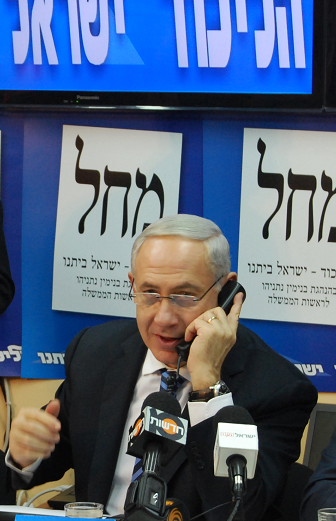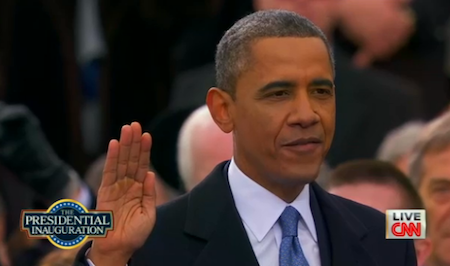Polling in advance of tomorrow’s elections has been fairly steady for a month now in respect of the composition of the next Knesset (הכנסת), Israel’s unicameral parliament.![]()
Expectations, from day one of the campaign, have been nearly unanimous that prime minister Benjamin Netanyahu will remain as prime minister, but we still don’t know what the ultimate government will look like because there are so many options for Netanyahu in crafting a coalition.
So what options will Netanyahu have when he wakes up on January 23?
Let’s start with the final poll from Haaretz, Israel’s oldest newspaper, printed on Friday, which is relatively consistent with most polling in the final two weeks of the campaign:
‘Likud Beiteinu’ — the merger of Netanyahu’s Likud (הַלִּכּוּד, ‘The Consolidation’) and the more nationalist Yisrael Beiteinu (ישראל ביתנו, ‘Israel is Our Home’) of former foreign minister Avigdor Lieberman — is expected to win the largest bloc of seats by far. The proliferation of other right-wing parties and the remaining fragmentation among various center-left, leftist, ultraorthodox haredim, and Israeli Arab parties means that there’s virtually no way that any party other than Netanyahu’s bloc can form a viable governing coalition.
As in the last Knesset, it is expected that the two major ultraorthodox parties, Shas (ש״ס) and United Torah Judaism (יהדות התורה המאוחדת), will join the Netanyahu coalition, giving him about 15 more seats for a total baseline of around 50 seats, according to current projections.
Kadima (קדימה, ‘Forward’) seems assured to fall from the largest single party in the current Knesset (28 seats to just 27 for Likud) to merely two seats, if that. There are certainly many reasons for Kadima’s implosion — its years in the opposition wilderness, the refusal of former prime minister Ehud Olmert to run for office, the uncertain leadership of Shaul Mofaz (who joined, and then left, Netanyahu’s prior coalition), and the proliferation of no less than five center-left parties vying for the same pool of centrist voters.
If Kadima does win just two seats, though (and it may not win the 2% share of votes that represents the current threshold for representation in the Knesset), those two seats will go to Mofaz and Yisrael Hasson. Mofaz, a former defense minister in Ariel Sharon’s government a decade ago, has a Likud background; Hasson left Yisrael Beiteinu only in 2008 to join Kadima. So both likely MKs hail from Kadima’s right wing, and it seems likelier than not that they too would join Netanyahu’s coalition.
So that brings the baseline a little higher, perhaps even into the 50s. Given that there are 120 members of the Knesset, this requires Netanyahu to find anywhere from around seven to 12 additional seats in order to form a bare majority (although for many reasons, he may well want a wider coalition).
The three Israeli Arab parties (Hadash, Balad and United Arab List Ta’al) are projected to win a total of 12 seats, but are certain not to join any Netanyahu-led coalition, nor would the Zionist leftist party Meretz (מרצ, ‘Energy’), which is projected to increase its representation from three seats to six.
So that leaves us with a relatively narrow handful of coalition options.
Here are the five likeliest: Continue reading A guide to the five likeliest Netanyahu-led governing coalitions for Israel



